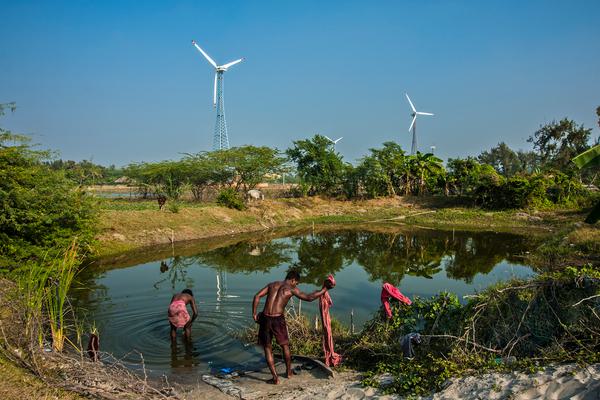Advancing a “Just” Business Role in Net Zero Transitions, COP29
20 November 2024
On November 20 2024, IHRB convened a discussion at COP29 to discuss the private sector's involvement in energy transitions alongside partners: National Business Initiative, BSR, The B Team, and We Mean Business Coalition.
Panelists included practitioners from business, government, and civil society. They shared lessons and perspectives on this important topic and discussed the value of existing international standards on business and human rights, advancements in co-creating transition plans with affected stakeholders, and how this can support ambitious and efficient climate action.
Speakers
- Dr Crispian Olver, Executive Director, Presidential Climate Commission of South Africa
- Reynoldo Sembiring, Indonesia Centre for Environmental Law (ICEL)
- Fernanda Facchini, Climate Director, Natura (Brazil)
- Ruchi Chaudhary, Program Manager, Climate Action Network South Asia (India)
- Amanda McKee, Knowledge & Learning Director, NDC Partnership
Opening, Closing, Moderation:
- Bhavna Deonarain, Programme Manager: Climate and Energy, National Business Initiative (NBI)
- Anine Bundgård, Manager Climate Change, BSR
- Haley St. Dennis, Head of Just Transitions, Institute for Human Rights and Business (IHRB)
Background
To date, private sector involvement in energy transitions globally, and in emerging and developing economies (EMDE’s) in particular, has primarily focused on how to attract and scale private capital and investments in the green technologies and economic diversification required to begin the transition to net-zero. Far less focus has been given to the role business will need to play in advancing and safeguarding the justice dimensions of these transitions.
The just transitions concept emphasises the need for a fair and inclusive shift towards a low-carbon economy while ensuring that no one is left behind. As the world grapples with the impacts of the climate crisis, it is crucial to recognise the unique challenges and opportunities faced by EMDEs. These nations often bear the brunt of climate-induced impacts despite contributing the least to global emissions. At the same time, transitions to a low-carbon economy in EMDEs also seek to use decarbonisation as an opportunity to address issues such as poverty, inequality, unemployment, and limited access to resources, while also leveraging opportunities for sustainable development, investment, and economic diversification.
In this context, businesses play a pivotal role in achieving net-zero by 2050, not only as drivers of economic growth and green investment but also as key actors in ensuring respect for human rights and fostering social equity and environmental sustainability throughout their transition activities. Business brings significant potential to create quality green jobs, invest in renewable energy growth, and support community resilience, but must also ensure that the social trade-offs and challenges of climate action are managed well, and harms are prevented, mitigated, and remediated along the way.


